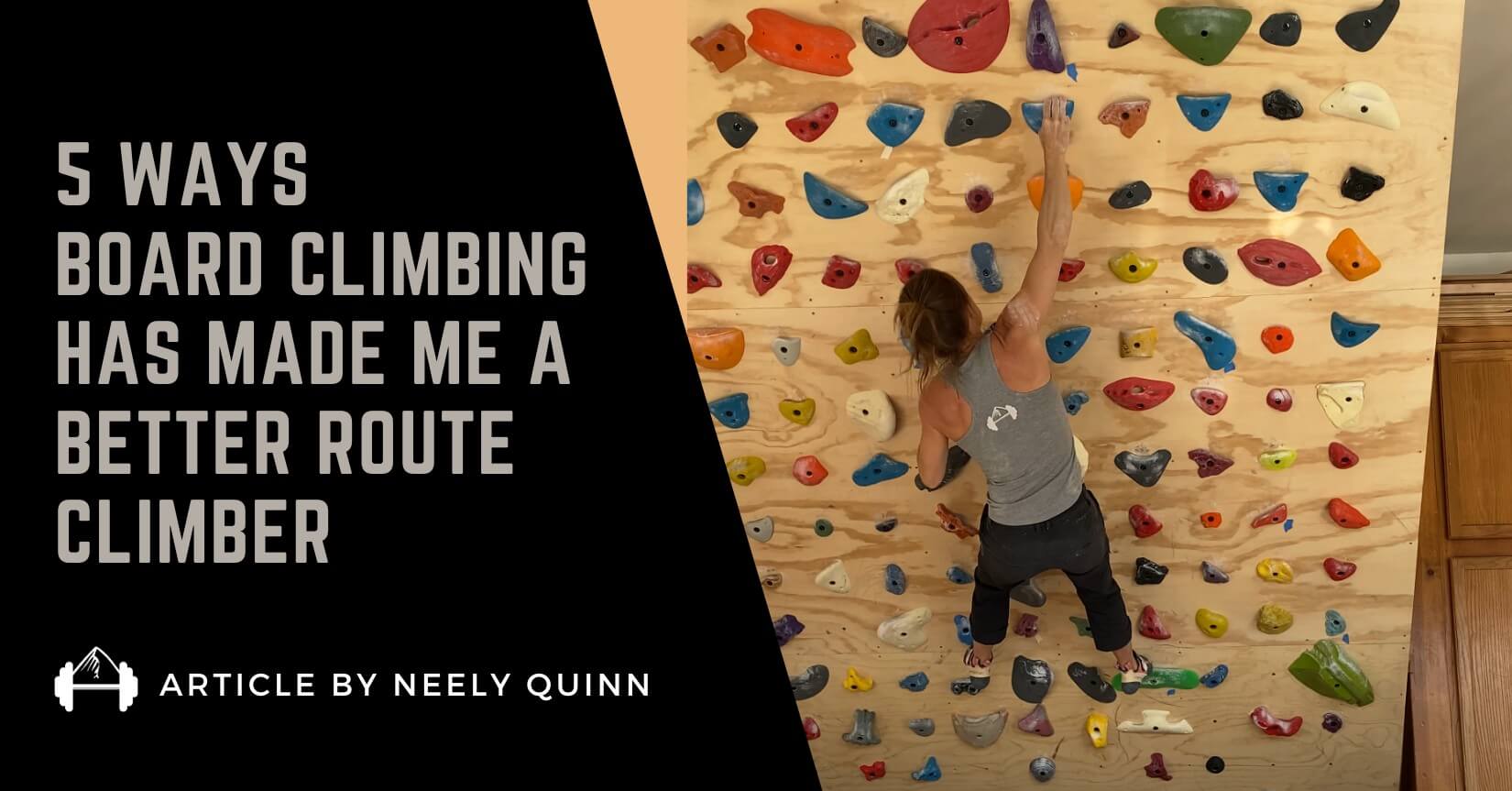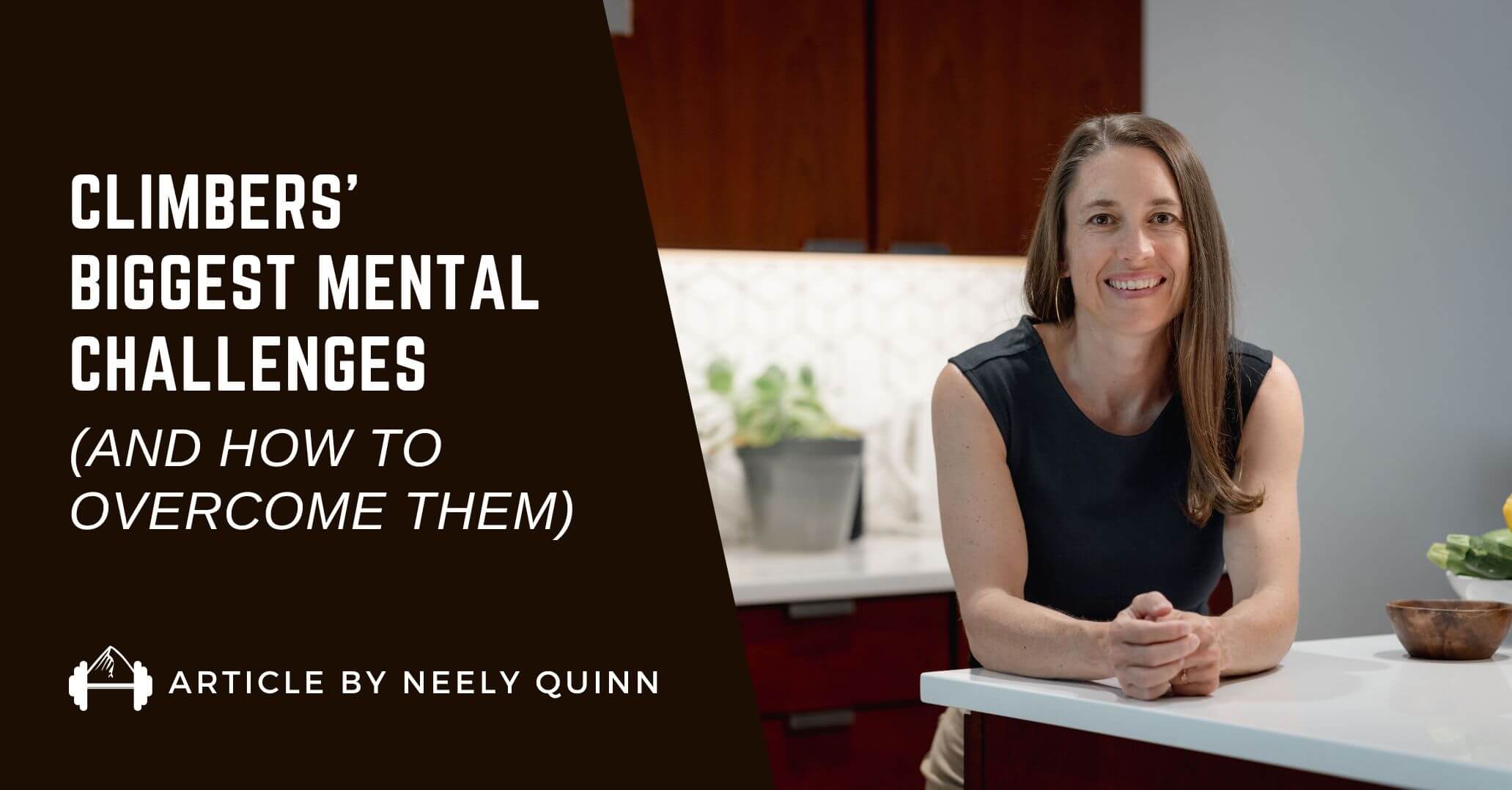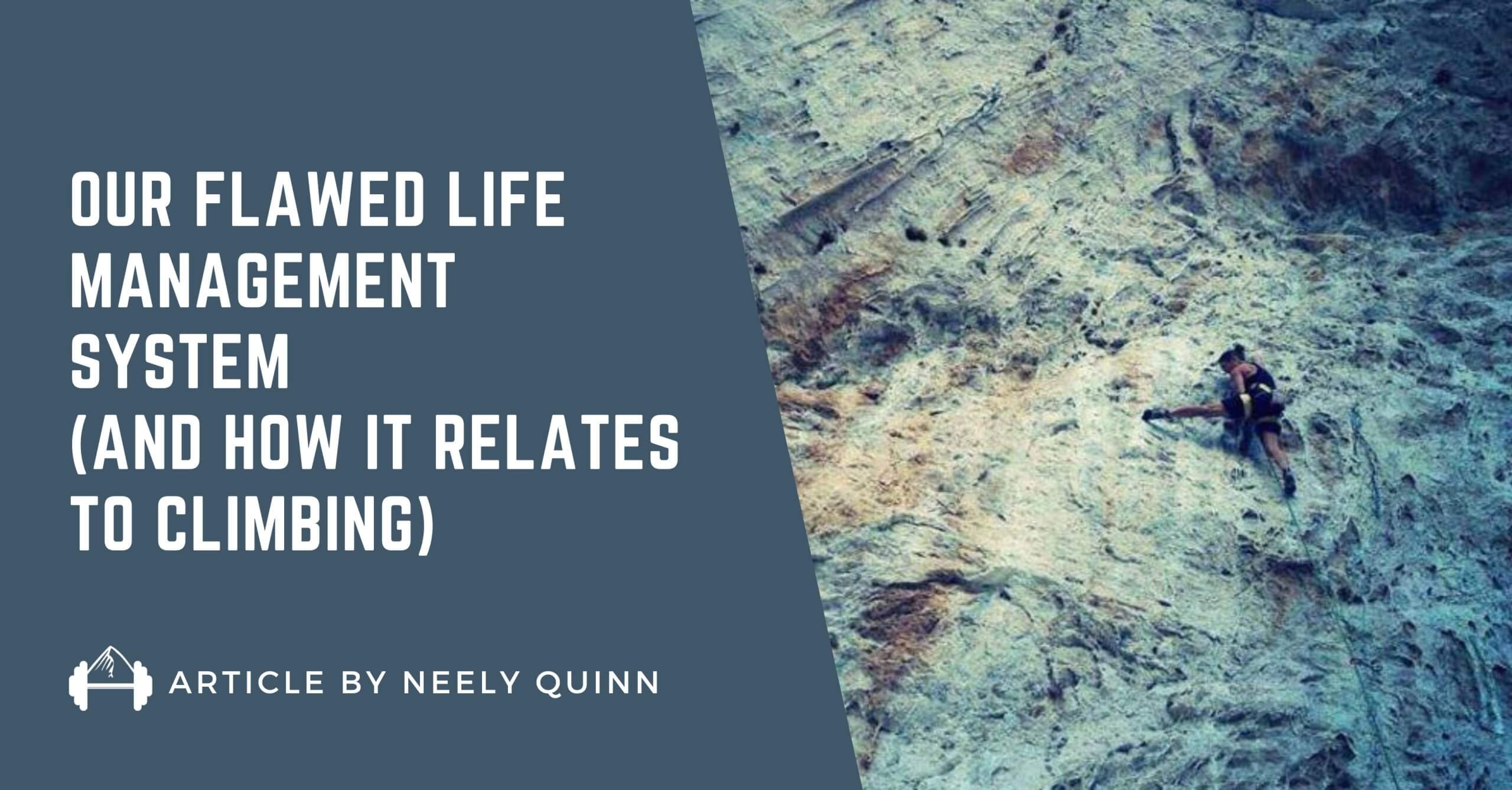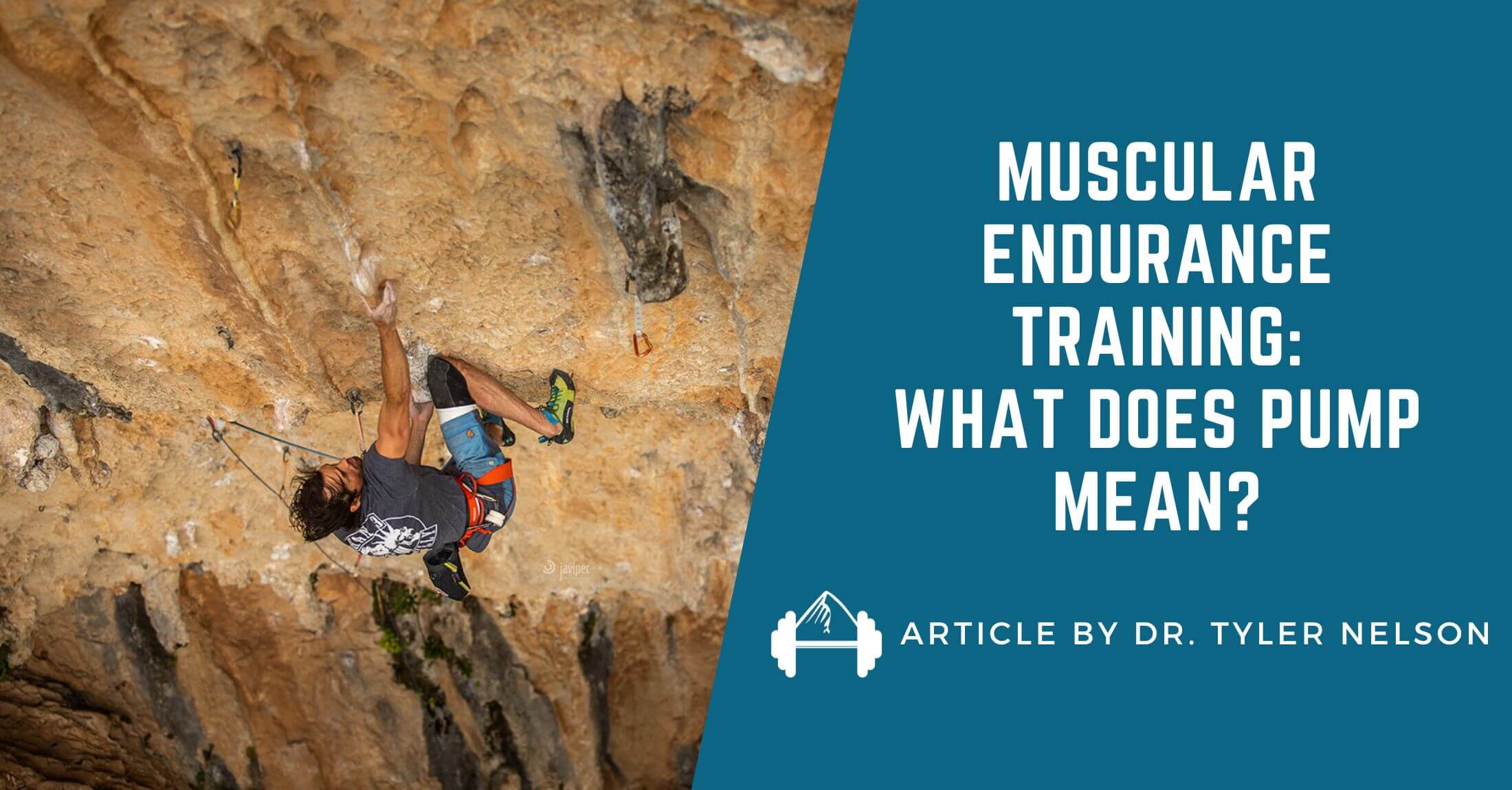I’m going to admit something to you… I don’t like climbing on boulders in gyms. They’re so tall and I’ve gotten whiplash from falling off the tops of them, so I just prefer to be on a rope. BUT I think this fear has really hindered my ability to become stronger over the years, honestly.
After all, I’ve watched my pro climber friends go from really great route climbers to INCREDIBLY strong route climbers by incorporating bouldering into their routines, even though they really prefer being on a rope. Bouldering teaches you how to move more dynamically, crimp harder, hold slopers, and keep your core tight to stop swings.
And you get to practice all of this over and over right off the ground, instead of working really hard to get UP to a bouldery crux on a route and then being too tired to actually try hard. In my efforts to find a compromise to training bouldering while also not being scared, I discovered that I love board climbing!
In particular, for some reason I really love the 2016 Moonboard set. Maybe because it’s crimpier than other sets. I don’t know, but board climbing has noticeably improved my climbing over the past few years and I love it.
Here’s What I’ve Gotten from Board Climbing
1. More confidence in my ability to do big moves
Because of the low risk involved in trying big moves on boards (you only ever fall like max 3 feet from the ground), I have now done WAY more big moves than I ever did before board climbing. That means…
2. I know my reach better
I can estimate whether or not I can reach a hold that’s at my max reach limit, and I know when I need to pop for holds a little bit. And all that practice with popping for holds has helped me too…
3. I have better aim
I’ve always complained that my aim is not great. I’ll just miss holds completely because my hand/eye coordination is not good, especially with my left hand. But now, it’s way better and I trust myself a lot more.
4. I’m more able to do weird, dynamic moves
Yesterday at the gym I was on this weird, dynamic, slopey route doing some very coordination-based moves, and my husband yelled up at me, “Doin’ some World Cup climbing up there!” And I’ve never been prouder haha. I wouldn’t have trusted myself to do those moves–or even known how to do them–without all the board climbing practice.
5. I learn from others
When I’m climbing routes it’s usually hard to even see what my partner is doing up there because I’m so busy belaying and they’re really far away from me at certain points.
But on boards, you’re all just sitting around taking turns and watching each other, and you start to notice little subtleties in how stronger climbers move their bodies, hold the holds, and where they’re dynamic vs static. It’s also easier for them to coach you to do the moves correctly when you’re both so close to the ground.
It’s been incredibly helpful for me to learn from stronger climbers on boards.
How I Incorporate Bouldering/Board Climbing into My Climbing
Now, I LOVE route climbing, so I am still guilty of doing it most of the time. I’ll boulder like once every 3 or 4 sessions these days. But if I’m training and actively trying to get stronger, I’m bouldering 1-3 times a week and then getting on a rope the other times (I climb around 4 days per week).
I’ll warm up on set boulders and a hangboard for about 20-30 minutes, then go to the board and do a projecting session for about an hour and a half when I start to feel fatigued. I’ll do problems that take me 1-5 tries or I’ll try things that are really hard for me, just to try new hard moves.
How You Can Incorporate Bouldering into Your Route Training
In our new Performance Route Training Program, there are 3 levels, and basically the levels are all about how much bouldering and strength training you’re doing.
In level 1, there’s not much bouldering OR strength training. It’s for people who really just need to get their skills up in route climbing and get more comfortable on a rope.
In level 2, you’re bouldering every 2nd or 3rd session and route climbing the rest of the time, and on your bouldering days you’re also strength training.
In level 3, you’re route climbing every 3rd session and strength training quite a bit, except in your de-load blocks. So you’re mostly bouldering.
Here’s an example of a bouldering day in level 2.
- Warm up: 15 minutes doing a “warmup ladder” where you start at V0 and do 2 boulders at each level up to your flash level.
- Movement Drill: During your warm-up you do sequence memorization where you pick a boulder, figure out the sequence, and repeat it 4-5 times using memorized beta.
- Limit Bouldering Session: Work on really hard moves without necessarily sending for about 80 minutes to build power and strength.
- 1-Rep Max Hangboard Testing: Figure out where you’re at on the hangboard on a 20mm edge to determine future sessions.
- Strength Training: Do 4 supersets of 5 reps of dead lifts, goblet squats, lawnmower rows, single arm overhead presses, plank pulldowns, and palloff presses for overall fitness and injury prevention.
Remember, you can try this program for free for 7 days and you can cancel at any time. The 50 sessions you’ll get in EACH of the 3 levels are all immediately available for you to see, and it is all just $18 per month.
Try the Route Training Program Free for 7 Days
We’d love for you to try out the program and let us know how you like it!
If you’re mostly a boulderer, we have a similar program for you! It’s our Performance Bouldering Training Program and it’s in the same framework as this new Performance Route Training Program. You can try it out free for 7 days here.
About the Author, Neely Quinn

Neely Quinn is the founder of TrainingBeta.com, the host of the TrainingBeta Podcast, a Certified Integrated Clinical Nutrition Therapist specializing in rock climbers, and a Certified Professional Coach who helps climbers with their mindset. She has been climbing since 1997 and is continuously striving to become a more masterful climber using training, nutrition, and mindset. She lives in Longmont, Colorado and Las Vegas, Nevada with her husband and co-founder of TrainingBeta, Seth Lytton, and their heeler mix, Willa.
You can find her nutrition services here and her coaching services here.





Leave A Comment